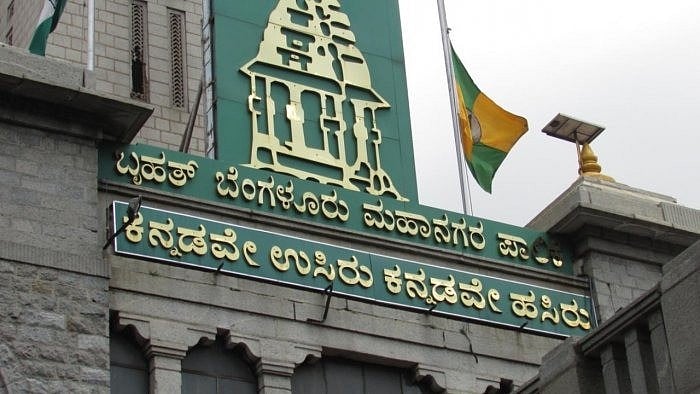
The BBMP office.
Credit: DH File Photo
The Greater Bengaluru Governance Bill, drafted by a joint committee, has been tabled in the Karnataka legislature, proposing significant reforms to address Bengaluru’s deep-rooted governance challenges. One of the key highlights of the bill is the splitting of the existing Bruhat Bengaluru Mahanagara Palike (BBMP) into seven separate corporations. The bill aims to decentralise the city’s administration, making it more efficient and citizen-friendly, while instilling greater transparency and accountability.
The reforms are being touted as forward-thinking, but the question remains whether they will deliver the transformative change that Bengaluru needs. For decades, there has been a persistent complaint that various parastatal agencies dealing with water, public transport, power, infrastructure and other civic amenities, have been working in isolation, often at cross-purposes, due to a lack of coordination. The proposed Greater Bengaluru Authority (GBA) is expected to fill this gap by bringing all these agencies under one unified framework to ensure better coordination and efficiency.
However, the organisational structure of the new mechanism raises several questions. With the GBA headed by the Chief Minister, there is no doubt that the mayor with a 30-month term will be no more than a titular head. Besides undermining the concept of local self governance, this could severely affect the autonomy of the GBA, reducing it to a hand-maiden of the state government, which would exert significant influence over the city’s administration. The structure thus lacks clarity. The bill also ignores the long-pending demand for a directly elected mayor-in-council with a fixed term of five years. The inclusion of MPs, MLAs and MLCs in the corporation council is a major drawback. This setup has in the past been used to manipulate the council strength and create an artificial majority for a particular party to enable them to elect a mayor who does not reflect the people’s choice. Lawmakers have distinct roles that do not involve meddling with city administration. At most, they may be invited to participate in meetings, but granting them voting powers is unnecessary and counterproductive to local governance.
The bill is a mixed bag, and it is crucial that legislators thoroughly discuss the pros and cons, putting aside political considerations. Moreover, the bill should not be used to delay the already overdue elections to BBMP. Their guiding principle should be the greater good of Bengaluru. The focus should be on streamlining governance, not complicating it further. While the bill presents a promising opportunity to address the city’s administrative woes, its success hinges on the willingness of the lawmakers to prioritise Bengaluru’s long-term interests over short-term political gains.
